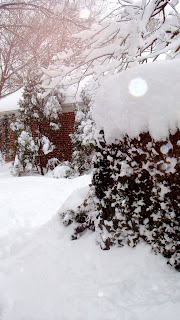But actually, poetry is supposed to appeal to our emotions, and not usually our intellect. In other words, if you have emotions (as I am going to assume you all do) - poetry is probably something you can handle!
A lot of people don't see what there is to love about poetry. Frankly, that could be because you're reading it wrong. And when it comes to poetry, "wrong" equals "silently." Poetry is meant to be read out loud. That way, you can capture the effectiveness of the language in the poem. You don't have to declaim it. You can just whisper. :)
You probably also have to read a poem more than once to understand it. Don't think that, just because it's gibberish the first time, you'll never get it.
I'm not going to say that everyone should love poetry, because some people are simply never going to like it - and that is perfectly fine! However, too many people write it off as a "smart person thing" before they even give it a try.
So, here's your chance. This is a lovely, and quite famous, poem of John Keats' called "Ode to a Nightingale." Many thanks to my friend Sarah for bringing it to my attention. I'm not going to post the whole thing - it's pretty long, with eight stanzas. Here is the seventh.
Thou wast not born for death, immortal Bird!
No hungry generations tread thee down;
The voice I hear this passing night was heard
In ancient days by emperor and clown:
Perhaps the self-same song that found a path
Through the sad heart of Ruth, when, sick for home,
She stood in tears amid the alien corn;
The same that oft-times hath
Charm'd magic casements, opening on the foam
Of perilous seas, in faery lands forlorn.










